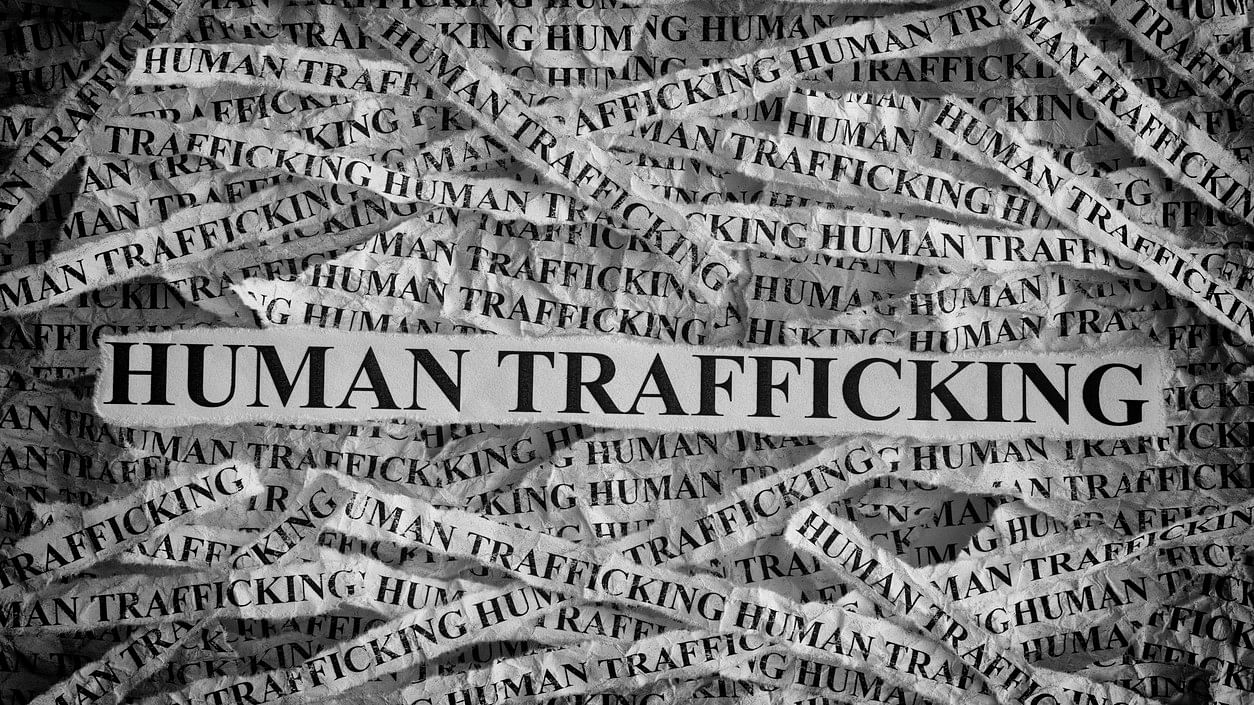
Representative image.
Credit: iStock Photo
Observed annually on July 30, the World Day Against Trafficking in Persons raises awareness about human trafficking and victims’ rights. The United Nations General Assembly has urged member states to enhance their criminal justice systems to combat trafficking. India ratified the UN Convention against Transnational Organised Crime in 2011, and Article 23 of the Indian Constitution prohibits human trafficking. Despite this, the government has not implemented the General Assembly’s recommendations or the Convention’s provisions. Since 2018, two anti-trafficking bills have been introduced in Parliament, but neither has been passed.
According to the National Crime Records Bureau (NCRB) data, 10,659 cases of human trafficking were registered in India from 2018 to 2022, involving 29,682 victims. During this period, 26,840 people were arrested; however, only 1,031 were convicted, while 4,936 were acquitted. This data does not accurately represent the true extent of trafficking in the country due to significant underreporting, especially in cases of child and sex trafficking.
The criminal justice system struggles with human trafficking cases, marked by underreporting and wrongful arrests. Innocent people are often wrongfully charged, harming them and leaving trafficked victims without justice. This results in low conviction rates and high acquittal rates. In February 2024, when asked in the Lok Sabha about the government’s steps to reduce human trafficking, the Home Ministry responded that new criminal laws had been passed by Parliament to address issues related to trafficking. These laws have been introduced with a promise to overhaul existing criminal laws, presenting an opportunity to address issues related to trafficking laws in the country. However, the new legislation introduces provisions that may exacerbate the problem.
New laws, old problems
Sections 109 and 110 of the Bharatiya Nyaya Sanhita (BNS) introduce “organised crime” as an offense. Previously, only some states penalised such crimes through special legislation. Section 109 defines organised crime as continuing unlawful activities by groups using violence, intimidation, or other illegal means for material benefit. It covers a wide range of offences, including human trafficking for prostitution or ransom. While ‘material benefit’ is undefined, ‘benefit’ in Section 109 includes ‘anything of benefit to a person, whether or not it has any inherent or tangible value, purpose, or attribute.’ This vague definition may expand the scope of organised crime. Sections 109(2) to 109(7) define and provide punishments for various offences associated with organised crime. Most of these clauses are drafted vaguely, allowing interpretations that could implicate anyone remotely associated with the crime, even if they were involved unintentionally or under coercion. For instance, holding property obtained from organised crime is punishable by imprisonment for three years to life, with no requirement of mens rea. These clauses might unintentionally implicate victims of prostitution and their dependents, who are forced into the profession and rely on it for their livelihood. Harsh punishments may discourage victims from reporting these crimes, worsening underreporting. Additionally, harsher punishments can increase acquittal rates, as judges may acquit when the punishment seems disproportionate, further lowering the already low conviction rate. Such laws are designed to enable exploitation. They are drafted without considering social factors, resulting in regulations conceived in a vacuum. This lack of foresight fails to account for the challenges associated with their implementation.
The Immoral Traffic (Prevention) Act, 1986, is a special legislation that focuses on trafficking for sexual exploitation while neglecting trafficking for purposes such as bonded labour, domestic servitude, forced marriage, or the illicit removal of organs. It assumes that all the women who are involved in sex work are doing it against their free will and overlooks those who engage in voluntary sex work. The conflation of trafficking with prostitution violates the rights of voluntary sex workers. Additionally, the Bonded Labour System (Abolition) Act, 1976, penalises bonded labour. Despite the stringent punitive measures stipulated by this Act, its enforcement is hampered by an inadequate understanding of legal provisions and a lack of training among law enforcement officials, resulting in its underutilization. The Scheduled Castes and Scheduled Tribes (Prevention of Atrocities) Act, 1989, also penalises trafficking, but the victims must belong to a scheduled caste or tribe.
Despite multiple laws, the problems associated with human trafficking remain unresolved. Strong efforts need to be made by the legislators to bring about separate, comprehensive legislation that deals solely with the complications related to trafficking. The drafters could adopt an all-inclusive definition of trafficking, which includes trafficking for purposes other than sexual exploitation. This definition should be specific and should eliminate the possibility of an overly broad interpretation.
(The writers are Assistant Professors at School of Law, RV University)